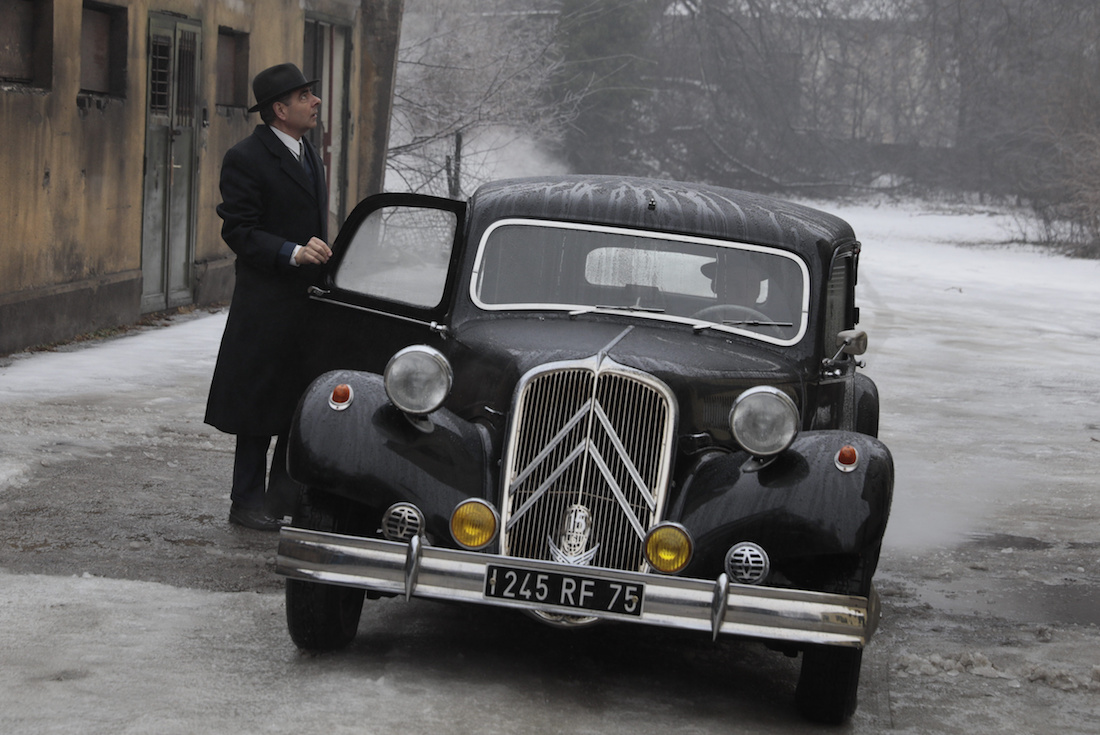He’s certainly better at it than he was when this new Maigret made his debut 18 months ago, and the production as a whole is getting the hang of finding the balance between the introspective and almost Jesuitical detective and the ugly violence and sleaze through which he moves. In the debut story, called simply Maigret, there was scarcely any action at all, with the protagonist largely motionless and a feeling that actually depicting somebody being murdered would be an affront to good taste. This time, though there’s some way to go before they have to think about bringing Jason Statham on board, there was a palpable air of violence and moral squalor hanging over the proceedings, like a whiff of ancient Parisian drains.

The action was set in motion when Arlette, a glamorous blonde stripper, fled in terror from the club and ended up telling her story to the police, a yarn about how she’d overheard two men plotting to murder somebody called the Countess. The solicitous Maigret was more inclined to heed Arlette’s story than his sceptical officers, and he was stricken with guilt when she was found dead only hours later.
We already knew that the Countess in question was a raddled wreck of a woman, a morphine addict speckled with needle tracks who lived in a delusional neverland with only a Bois-de-Boulogne rent boy called Philippe (Sebastian de Souza) for company. Before long the Countess too was found murdered, apparently by Arlette’s killer. As Maigret patiently picked at this murky ball of string, he gradually unravelled a chain of events stretching back to Nice before World War Two, where the Countess had lived with her wealthy but bullying Count, and where the young Arlette, a simple country girl from Lisieux, had been coerced into a life of prostitution.
 When you laid out the bare facts, this was a harsh and brutal tale, even though it was cloaked in the trappings of mainstream Sunday evening drama. Virtually all the characters were trapped in bleak predicaments which forced them to resort to desperate measures. Arlette’s real name was Marie Lefevre, and she’d been born under a bad sign (she bore her uncle's illegitimate child.) Her move to Nice had set wheels in motion which led inexorably to her lowlife existence in Paris and the deaths of herself and the Countess. This was a world where girls in her situation inevitably found themselves being exploited by the likes of Alfonsi, while even a medical “professional” like Dr Bloch (Adrian Scarborough) had no compunction about trading drug prescriptions for gay sex.
When you laid out the bare facts, this was a harsh and brutal tale, even though it was cloaked in the trappings of mainstream Sunday evening drama. Virtually all the characters were trapped in bleak predicaments which forced them to resort to desperate measures. Arlette’s real name was Marie Lefevre, and she’d been born under a bad sign (she bore her uncle's illegitimate child.) Her move to Nice had set wheels in motion which led inexorably to her lowlife existence in Paris and the deaths of herself and the Countess. This was a world where girls in her situation inevitably found themselves being exploited by the likes of Alfonsi, while even a medical “professional” like Dr Bloch (Adrian Scarborough) had no compunction about trading drug prescriptions for gay sex.
The eventual unmasking of the killer came as something of an anticlimax, and the scenes depicting the home life of Maigret, where he continually tries the patience of the saintly Mme Maigret (Lucy Cohu) by, for instance, wordlessly walking out in the middle of dinner to follow a new lead, are more absurd than the wildest plot twists. But Simenon’s conception of a cerebral, strictly moral detective determined not to be overwhelmed by the savagery of the human jungle remains a potent one. You have to wonder what might be done with Maigret if Netflix or HBO went to town on him.














Add comment